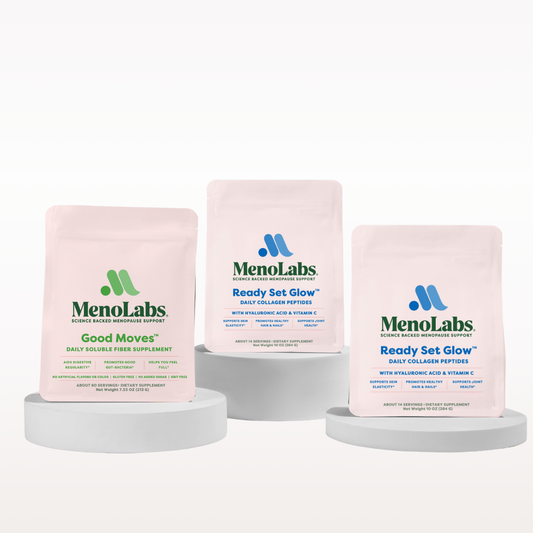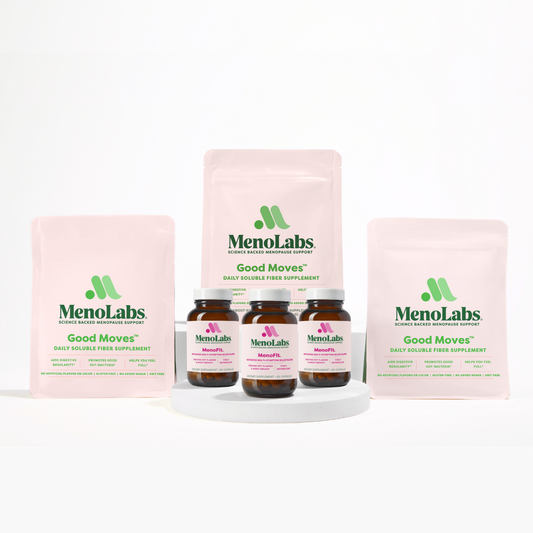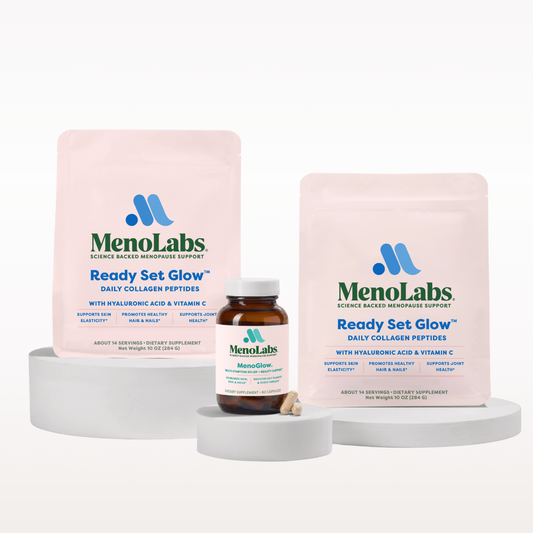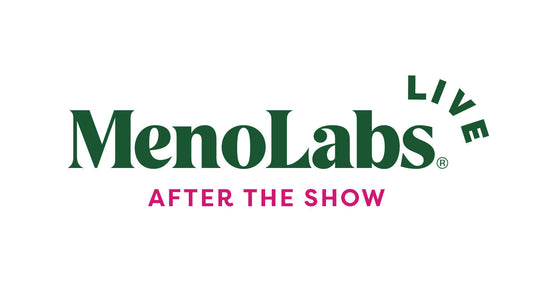Many hormonal changes accompany menopause. As your hormone levels fluctuate, a range of symptoms can occur, from hot flashes and weight gain to skin problems and insomnia. But not many women realize that menopause also has an impact on their eye health. Dry eyes, glaucoma, or cataracts could appear as you age. Your eyesight can slightly change, and so can the shape of your eyes. Do not get discouraged because there are steps you can take in order to support your eye health in menopause.

Why Do You Have Dry Eyes in Menopause?
With age, the amount of tears your eyes can produce changes. Tears are essential for the eyes as they help clear out the dust and refresh your vision. But in women after menopause, dry eye disease is common, because of decreasing hormone levels. Sex hormones are the ones enhancing tear production, so as those levels slowly or rapidly drop, you can develop the dry eye syndrome. This disease can cause pain and discomfort in the eyes, along with a decrease in vision. But there are ways in which you can find relief from this syndrome. Consult your doctor but also take natural steps to heal.
At the moment, there are many ways in which you can treat dry eye symptoms. There are some meds you can buy without a prescription, but there are also others that your doctor could suggest instead. Eye drops are the most common, but there are also special drugs and contact lenses that could help. Often, your doctor would recommend using artificial tears, so your eyes have moisture. But in other cases, you might choose hormone treatment, which can also relieve your symptoms.
Hormone Replacement Therapy for Eye Health in Menopause
For many years, hormone replacement therapy (HRT) has been the most common therapy for treating symptoms of menopause. A good side of it is that it can really help women who suffer from severe symptoms like hot flashes, mood swings, or vaginal health problems. On the bad side are the potential side effects of such therapy that make it clear that sometimes, the benefits do not outweigh the risks. Among doctors, it is not clear whether HRT helps improve eye health, but some studies show good results for this therapy.

But as many hormonal treatments, HRT is not without flaws. It may increase the risk of blood clots, stroke, heart disease, breast cancer, osteoporosis, and diabetes. Talk to your doctor about the possible risks as well as the benefits of HRT.
Protecting Your Eye Health
For any eye disease, taking care of your eyes every day is a natural step to boosting the healing process. Small changes in your daily habits can have good results for improving your specific eye problem and supporting your eye health in general. If you sit in front of screens like a computer or phone for the majority of the day, make sure to take breaks so that your eyes could take time to rest. Close them or blink multiple times. Use sunglasses when you go outside so that your eyes can be covered in case of strong winds, which can carry dust. Moisten the air in your room, so your eyes do not become too dry. Also, wear glasses instead of contact lenses so that they do not worsen the dryness.
Following a Healthy Diet
Different diets are suitable for different parts of your body. For eye health, you should aim for plenty of fruits and vegetables during the day so you can get antioxidants that fight inflammation in the body. Eat whole foods and avoid those which are processed, along with food that contains chemicals, preservatives, additives, and artificial sweeteners. Certain supplements could also help improve your eye health in menopause. Those include oils rich in omega-3 fatty acids, such as flaxseed, borage, and primrose oil. Apart from these, you can also supplement with probiotics.

Probiotics for Eye Health in Menopause
Probiotics could have uses for many symptoms of menopause, and they were also seen to help improve various aspects of eye health. Understanding how your gut microflora works and how it impacts other parts of your body is still not complete. That is why more uses for probiotics are being discovered. A 2007 study found that probiotics helped improve symptoms of vernal keratoconjunctivitis. This is an allergic disease of the eyes which causes tearing, itching, and burning sensations.
Another 2017 study showed good results for probiotics Saccharomyces boulardii and Enterococcus faecium for reducing dry eye syndrome. A lot of menopausal women with dry eye syndrome turn to probiotics and omega-3 capsules as their main supplementation for finding relief. There is also research that suggests microflora of the gut is similar to the bacterial composition of the retina. Based on that, improving the gut bacterial balance would also work well for improving the bacterial balance in the eyes.
Related Products
Blend Besties Bundle
Fresh Start Bundle
4.7 / 5.0
(553) 553 total reviews












